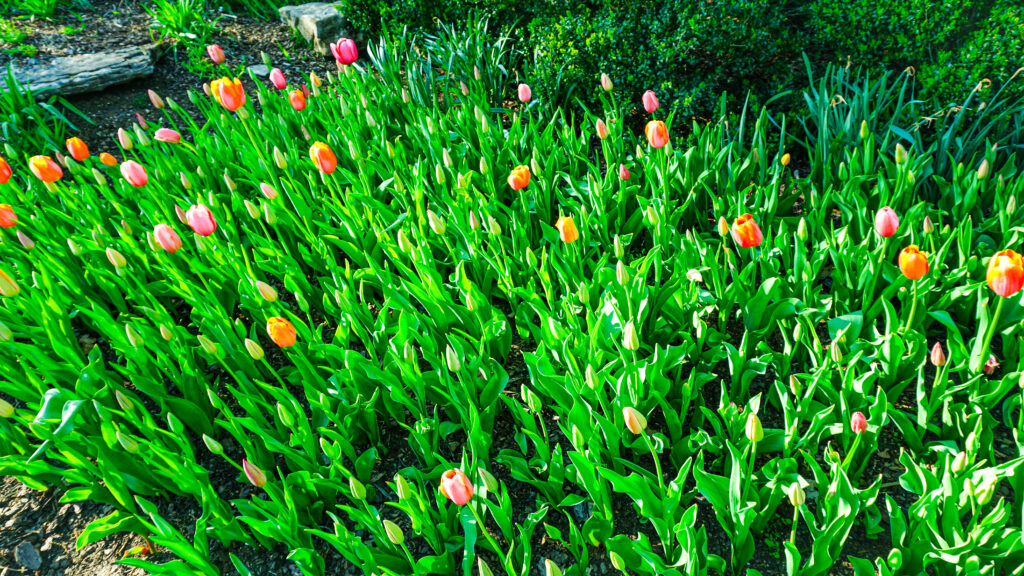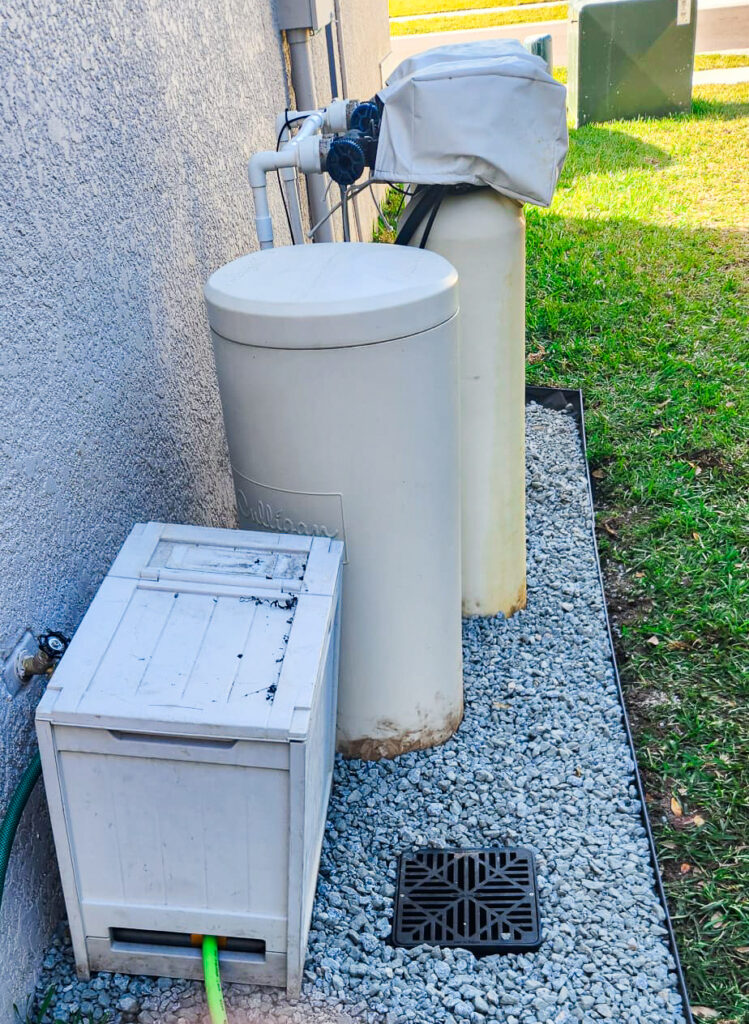
"Green Landscape Irrigation Unveils Top Trends at TPIE 2024 - Your Gateway to Tropical Foliage Brilliance!"
Greetings, green enthusiasts! As the temperature rises, so does the excitement in the tropical landscaping realm, and Green Landscape Irrigation is thrilled to be part of the upcoming Tropical Plant Industry Exhibition (TPIE) 2024 in Fort Lauderdale, US. This premier event is your ticket to the hottest trends in foliage, floral, and tropical landscaping right in the heart of sunny Florida.
Why TPIE?
The Tropical Plant Industry Exhibition is not just any trade show; it’s the pinnacle of all things lush and vibrant. TPIE 2024 promises a visual feast of the latest trends in tropical plants, foliage, and floral designs. It’s an opportunity for industry leaders, landscaping enthusiasts, and professionals to converge and explore the endless possibilities of creating stunning tropical landscapes.
Discover the Green Landscape Difference: Green Landscape Irrigation is not just attending; we’re showcasing! Join us at Booth to witness cutting-edge irrigation solutions tailored for tropical landscapes. Our experts will be on hand to discuss how innovative irrigation practices can enhance the beauty and longevity of your tropical greenery.
What to Expect:
- Expert Insights: Gain valuable knowledge from our seasoned professionals on optimizing irrigation for tropical plants.
- Live Demonstrations: Experience firsthand how our irrigation systems bring out the best in tropical foliage.
- Networking: Connect with like-minded individuals passionate about creating breathtaking tropical landscapes.
Maximize Your TPIE Experience:
- Stay Connected: Follow our social media channels for live updates, behind-the-scenes glimpses, and exclusive TPIE highlights.
- Engage with Us: Share your thoughts, questions, and favorite TPIE finds using #GreenLandscapeTPIE2024.

Landscaping Irrigation: Enhancing Your Landscape with Proper Water Management
Introduction to Landscaping Irrigation
Landscaping irrigation is a crucial aspect of maintaining a vibrant and healthy outdoor space. Whether you have a small backyard garden or expansive commercial landscaping, ensuring adequate water supply to plants is essential for their growth and longevity.
Importance of Proper Irrigation in Landscaping
Proper irrigation plays a pivotal role in maintaining the health and beauty of your landscape. It provides plants with the necessary moisture they need to thrive, promotes root development, and helps prevent diseases caused by over or under-watering.
Types of Landscaping Irrigation Systems
Sprinkler Systems
Sprinkler systems are one of the most common methods of landscape irrigation. They distribute water through a network of pipes and sprinkler heads, covering large areas efficiently. Sprinkler systems are suitable for lawns, flower beds, and shrubbery.
Drip Irrigation Systems
Drip irrigation systems deliver water directly to the base of plants, minimizing water wastage and evaporation. They are ideal for gardens with individual plants or rows of crops, providing precise control over watering.
Soaker Hoses
Soaker hoses release water slowly along their length, delivering moisture directly to the soil. They are ideal for watering garden beds, hedges, and delicate plants, ensuring deep root penetration without runoff.
Factors to Consider Before Installing Irrigation Systems
Before installing an irrigation system, several factors should be taken into account to ensure its effectiveness and efficiency.
Climate and Weather Patterns
Understanding the climate and weather patterns of your region is essential for determining the water needs of your landscape. Areas with hot, dry climates may require more frequent watering, while regions with ample rainfall may need less.
Soil Type and Drainage
The soil type and drainage characteristics of your landscape will influence how water is absorbed and retained. Sandy soils drain quickly and may require more frequent watering, while clay soils retain moisture for longer periods.
Plant Types and Water Needs
Different plants have varying water requirements based on their species, size, and stage of growth. It’s essential to group plants with similar water needs together and adjust irrigation accordingly.
Designing an Efficient Irrigation Plan
Creating an efficient irrigation plan involves careful consideration of various factors to optimize water usage and minimize waste.
Zoning and Water Distribution
Dividing your landscape into zones based on water requirements allows for customized irrigation schedules. High water-use areas such as lawns can be zoned separately from low-water use areas like native plant gardens.
Water Conservation Techniques
Incorporating water-saving techniques such as mulching, rainwater harvesting, and soil moisture sensors can help reduce water consumption and lower utility bills.
Installation Process of Landscaping Irrigation Systems
Installing a landscaping irrigation system requires proper planning, preparation, and execution to ensure optimal performance and longevity.
Site Preparation
Preparing the site involves mapping out the landscape, identifying water sources, and clearing any obstacles that may hinder installation.
Choosing the Right Components
Selecting the appropriate components, including pipes, valves, controllers, and emitters, is crucial for the success of the irrigation system.
Installation Methods
Depending on the type of irrigation system chosen, installation methods may vary. It’s essential to follow manufacturer guidelines and best practices to ensure proper installation.
Maintenance Tips for Landscaping Irrigation Systems
Regular maintenance is key to keeping your irrigation system in top condition and avoiding costly repairs.
Regular Inspections
Inspecting the system for leaks, clogs, and damaged components should be done regularly to prevent water waste and ensure proper functioning.
Adjusting Watering Schedules
Adjusting watering schedules seasonally and based on weather conditions helps avoid over or under-watering and promotes plant health.
Repairing Leaks and Malfunctions
Promptly addressing any leaks or malfunctions in the irrigation system can prevent water loss and damage to plants and structures.
Advantages of Professional Irrigation Services
While DIY installation may be tempting, hiring professional irrigation services offers several advantages, including expertise, warranty coverage, and time savings.
DIY vs. Professional Installation: Pros and Cons
Both DIY and professional installation have their pros and cons, depending on factors such as budget, time constraints, and technical expertise.
Cost Considerations for Landscaping Irrigation
The cost of installing a landscaping irrigation system varies depending on factors such as the size of the area, type of system chosen, and labor costs.
Environmental Benefits of Efficient Irrigation Practices
Implementing efficient irrigation practices not only conserves water but also reduces runoff, soil erosion, and pollution, benefiting the environment.
Innovations in Landscaping Irrigation Technology
Advancements in irrigation technology, such as smart controllers, weather-based sensors, and drip irrigation systems, are making water management more precise and efficient.
Common Mistakes to Avoid in Landscaping Irrigation
Avoiding common mistakes such as overwatering, improper installation, and neglecting maintenance can help maximize the effectiveness of your irrigation system.
Case Studies: Successful Landscaping Irrigation Projects
Examining real-world examples of successful landscaping irrigation projects can provide insights and inspiration for your own endeavors.
Conclusion: Enhancing Your Landscape with Proper Irrigation
In conclusion, landscaping irrigation is essential for maintaining a vibrant and healthy outdoor space. By understanding the principles of water management, selecting the right irrigation system, and following best practices, you can enhance the beauty and sustainability of your landscape.
FAQs
How often should I water my lawn with a sprinkler system?
- The frequency of watering depends on factors such as climate, soil type, and grass species. Generally, lawns require about 1-1.5 inches of water per week, applied in one or two watering sessions.
Can I install a drip irrigation system myself?
- While DIY installation is possible for drip irrigation systems, it requires careful

